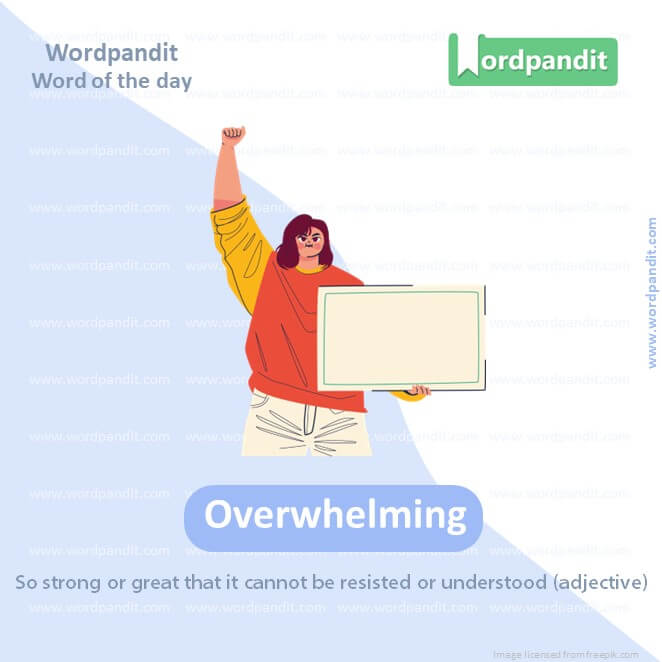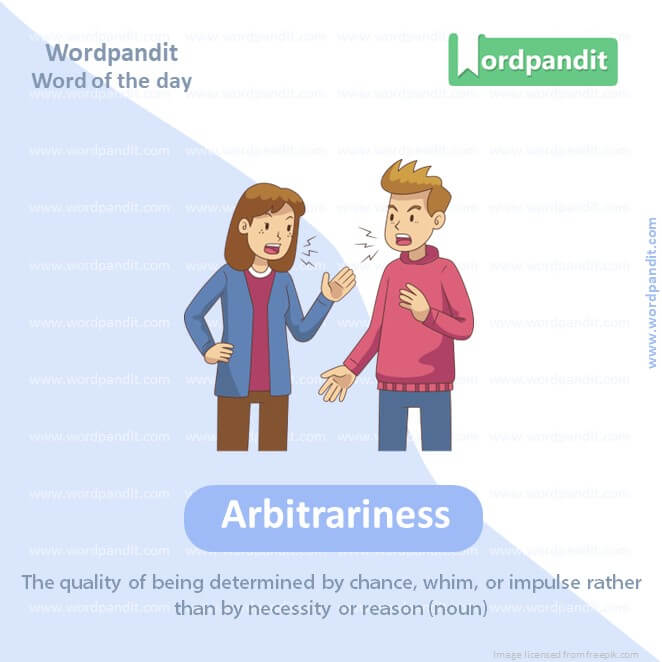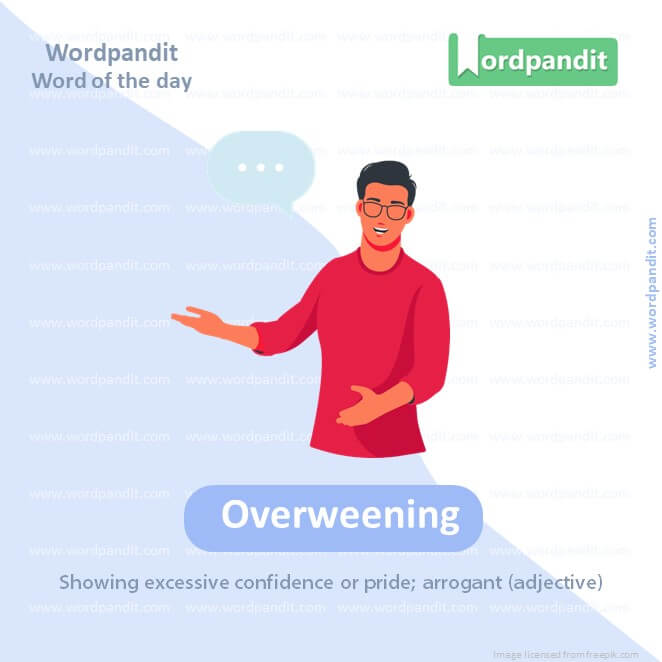Daily Vocabulary Words: List of Daily Used Words in Leading Indian Newspapers
Hi there. Welcome to this special section @ Wordpandit. Our endeavour here is straightforward: highlighting daily vocabulary words that you would come across in leading newspapers in the country. We have included the following newspapers in our selection:
• The Times of India
• The Economic Times
• Hindustan Times
• Mint
• Indian Express
We are putting in extensive work to develop your vocabulary. All you have to do is be regular with this section and check out this post daily. This is your repository of commonly used words; essentially, we are posting a list of daily used words. Hence, this has significant practical application as it teaches you words that are commonly used in leading publications mentioned above.
Visit the website daily to learn words from leading Indian newspapers.

WORD-1: Crusaders
CONTEXT: Lack of efforts to find consensual solutions gives opportunity to fringe elements to rise and be perceived as crusaders for a cause and creates disorder.
SOURCE: Hindustan Times
EXPLANATORY PARAGRAPH: Imagine there were once knights wearing shiny armor who went on long journeys called “crusades”. These knights are called Crusaders. They wanted to protect special places and their beliefs.
MEANING: People who fought in the religious wars in the Middle Ages, especially in the Holy Land; or someone who is passionate about a particular cause. (noun)
PRONUNCIATION: kroo-SAY-ders
SYNONYMS: Campaigners, Champions, Warriors, Advocates, Defenders, Fighters, Supporters
USAGE EXAMPLES:
1. The Crusaders left Europe to recapture the Holy Land.
2. Environmental crusaders are fighting to protect the forest.
3. The museum had an exhibit on the armor used by the Crusaders.
4. The local crusaders for animal rights held a rally.

WORD-2: Overwhelming
CONTEXT: It has become common to suggest that the “New India” is characterised by the overwhelming importance of private enterprise and the unleashing of a creative spirit of entrepreneurialism that had apparently been held in check in previous eras.
SOURCE: Indian Express
EXPLANATORY PARAGRAPH: Imagine you have a small toy boat, and you put it in a bathtub full of water. If the water covers the boat completely, it’s like the boat is overwhelmed by the water. It’s when something is so much or so strong that it’s hard to handle.
MEANING: So strong or great that it cannot be resisted or understood. (adjective)
PRONUNCIATION: oh-ver-WHEL-ming
SYNONYMS: Enormous, Immense, Intense, Staggering, Powerful, Profound, Breathtaking
USAGE EXAMPLES:
1. The evidence against him was overwhelming.
2. The city’s beauty is truly overwhelming.
3. There was an overwhelming response to the charity appeal.
4. The team had an overwhelming victory in the finals.

WORD-3: Arbitrariness
CONTEXT: The arbitrariness of state action against perceived “enemies” of the state has led to a popular perception that the only safe place to be is inside the state.
SOURCE: Indian Express
EXPLANATORY PARAGRAPH: Imagine if someone closed their eyes and pointed to a toy without looking. They didn’t have a specific reason for choosing that toy. That’s being arbitrary. “Arbitrariness” is the name for this kind of action where things are done without clear reasons.
MEANING: The quality of being determined by chance, whim, or impulse rather than by necessity or reason. (noun)
PRONUNCIATION: ahr-BI-truh-ree-ness
SYNONYMS: Capriciousness, Randomness, Whimsicality, Unpredictability, Chance, Haphazardness, Irregularity
USAGE EXAMPLES:
1. The arbitrariness of the decision surprised everyone.
2. Many people disagreed with the arbitrariness of the new rules.
3. She disliked the arbitrariness of her boss’s decisions.
4. The arbitrariness of the lottery always amazed him.

WORD-4: Overweening
CONTEXT: This happens in a context of an overweening state presence in everyday life, no one is silly enough to actually believe it.
SOURCE: Times of India
EXPLANATORY PARAGRAPH: Imagine someone who thinks they are the best at everything and they always talk about it. This is like being overconfident. “Overweening” is a big word that means being too sure of yourself or thinking you’re better than everyone else.
MEANING: Showing excessive confidence or pride; arrogant. (adjective)
PRONUNCIATION: oh-ver-WEE-ning
SYNONYMS: Presumptuous, Arrogant, Conceited, Haughty, Imperious, Pretentious, Egotistical
USAGE EXAMPLES:
1. Her overweening pride led to her downfall.
2. He has an overweening belief in his own abilities.
3. The director’s overweening ambition overshadowed the film’s storyline.
4. The team’s overweening confidence made them underestimate their opponents.

WORD-5: Untrammelled
CONTEXT: The state seems the only safe haven against arbitrary action and markets are allowed untrammelled power to determine how we work.
SOURCE: Indian Express
EXPLANATORY PARAGRAPH: Imagine you are running in an open field with no fences or barriers stopping you. You can run wherever you want. That’s like being “untrammelled”, which means not being held back or restricted by anything.
MEANING: Not limited or restricted; free. (adjective)
PRONUNCIATION: un-TRAM-elled
SYNONYMS: Unrestricted, Unhindered, Unbounded, Free, Unconstrained, Uninhibited, Unrestrained
USAGE EXAMPLES:
1. The artist had an untrammelled spirit.
2. The deer ran untrammelled through the woods.
3. He wanted to live an untrammelled life, free of society’s norms.
4. Her imagination was untrammelled, leading to innovative designs.
WORD-6: Interoperability
CONTEXT: ABDM provides benefits that come with scale and interoperability.
SOURCE: Hindustan Times
EXPLANATORY PARAGRAPH: Think about two different toy train sets. If you can connect the tracks from one set to another and the trains can run smoothly on both, then they work together. “Interoperability” is a fancy word that means two different things can work together without problems.
MEANING: The ability of computer systems or software to exchange and use information. (noun)
PRONUNCIATION: in-ter-OP-er-uh-bil-it-ee
SYNONYMS: Compatibility, Cooperation, Integration, Collaboration, Conjunction, Coordination, Co-working
USAGE EXAMPLES:
1. Interoperability is crucial for modern software systems.
2. The new update ensured interoperability with older versions.
3. The two companies worked on the interoperability of their products.
4. Lack of interoperability can hinder the user experience.
WORD-7: Spectacularly
CONTEXT: Tyre killers, speed-breakers with a slope on one side and metal spikes on the other, installed to control wrong-side driving in Noida some years ago spectacularly failed as one person would hold down the spikes that would puncture tyres of vehicles on the wrong side of the road.
SOURCE: Hindustan Times
EXPLANATORY PARAGRAPH: Think about seeing a huge, beautiful fireworks show in the night sky. It looks amazing and makes you go “Wow!”. That’s something done in a very special and impressive way. “Spectacularly” is a word that describes doing something so it looks really, really amazing.
MEANING: In an impressive, grand, or dramatic manner. (adverb)
PRONUNCIATION: spek-TAK-yuh-ler-lee
SYNONYMS: Magnificently, Impressively, Stunningly, Dazzlingly, Brilliantly, Remarkably, Exceptionally
USAGE EXAMPLES:
1. The fireworks lit up the sky spectacularly.
2. The team won spectacularly, scoring five goals.
3. The mountain range was spectacularly beautiful.
4. The movie ended in a spectacularly dramatic fashion.
WORD-8: Haphazard
CONTEXT: Faulty road engineering, poor designing of junctions, inadequate signage, haphazard planning of state highways and city roads/lanes all play a role in causing accidents.
SOURCE: Indian Express
EXPLANATORY PARAGRAPH: Imagine you have a box of crayons and you throw them in the air, and they land all over the place. That’s like doing something without a plan or order. “Haphazard” means things are mixed up or done without thinking about where they go.
MEANING: Without any obvious order or plan. (adjective/adverb)
PRONUNCIATION: HAP-huh-zurd
SYNONYMS: Random, Chaotic, Disorderly, Disorganized, Aimless, Hit-or-miss, Slipshod
USAGE EXAMPLES:
1. The books were stacked in a haphazard manner.
2. She haphazardly tossed her clothes into the suitcase.
3. The town grew in a haphazard way without proper planning.
4. The project seemed to be done in a haphazard fashion.
WORD-9: Recklessly
CONTEXT: India’s rapid adoption of electric two-wheelers, smaller and quieter is celebrated, yet they are driven even more recklessly.
SOURCE: Times of India
EXPLANATORY PARAGRAPH: Imagine riding a bicycle super fast down a hill without a helmet or looking where you’re going. That’s dangerous and not very safe, right? When someone does something like that, they are acting “recklessly”, which means doing something without thinking about the risks.
MEANING: Without thinking or caring about the consequences of an action. (adverb)
PRONUNCIATION: REK-les-lee
SYNONYMS: Rashly, Carelessly, Foolhardily, Irresponsibly, Thoughtlessly, Heedlessly, Wildly
USAGE EXAMPLES:
1. He drove recklessly through the crowded streets.
2. She spent money recklessly without saving any.
3. Recklessly, he jumped into the river without checking the depth.
4. Running recklessly, he tripped and fell.
WORD-10: Proprietorship
CONTEXT: Swami Vivekananda says it is not that you shouldn’t have property, necessary things and even luxuries, but never get wrong ideas about their proprietorship.
SOURCE: Times of India
EXPLANATORY PARAGRAPH: Imagine you built a big sandcastle on the beach. That sandcastle belongs to you because you made it. You are the owner. “Proprietorship” is a fancy word that means someone owns something, especially a business.
MEANING: The state or right of owning and running a business or holding property. (noun)
PRONUNCIATION: pro-pri-uh-TOR-ship
SYNONYMS: Ownership, Possession, Holdership, Propriety, Mastery, Dominion, Entitlement
USAGE EXAMPLES:
1. The restaurant is under new proprietorship.
2. He has the proprietorship of the art gallery downtown.
3. After years of hard work, she took proprietorship of the company.
4. The change in proprietorship improved the store’s services.
Vocabulary SSC
Navigating the path to success in competitive examinations like the Staff Selection Commission (SSC) triggers a keen focus on ‘vocabulary SSC’. This collection of words, often prominent in SSC examinations, holds paramount importance, and forms a significant part of a candidate’s linguistic preparation. However, mastering ‘vocabulary SSC’ is a process that requires deliberate strategy and dedication.
To begin the journey with ‘vocabulary SSC’, a structured learning regime is key. Break the learning process into manageable chunks. Concentrate on a set number of words each day. This steady, consistent approach reduces the risk of burnout and enhances long-term retention of vocabulary.
The strategic use of memory aids can significantly boost the learning of ‘vocabulary SSC’. Utilize flashcards, memory apps, or even create personal mnemonics to help remember each word and its meaning more effectively. Associating a word to a personal event or object creates a lasting mental connection, making recall easier.
To truly master ‘vocabulary SSC’, it’s crucial to engage with the words in different contexts. Incorporating the words into daily reading and writing practices provides exposure to their usage in varied situations. This practical application reinforces the understanding of ‘vocabulary SSC’, enhancing the ability to employ these words accurately in the exam setting.
Regular revision is a must when preparing ‘vocabulary SSC’. Spaced repetition, interspersing the study with regular breaks, and regularly revisiting the words learned, ensures the words stay firm in your memory, ready to use when needed.
In essence, preparing ‘vocabulary SSC’ is an exercise in action-oriented constant learning. Strategic use of learning tools, practical application, and regular revision are key aspects of getting a grip on ‘vocabulary SSC’. As you stride through this process, you inch closer to acing your SSC examinations with an enriched vocabulary and boosted confidence.













